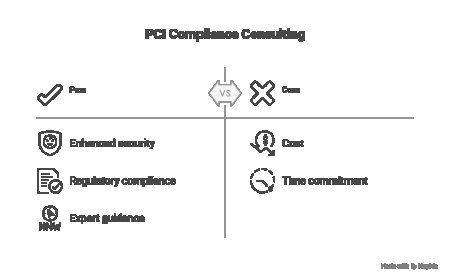ASP vs CSP: Which Certification Should You Choose?
Discover whether the ASP or CSP certification is the right fit for your safety career path.

If you're building a career in occupational safety, you've likely come across two major options: the Associate Safety Professional Certification (ASP) and the Certified Safety Professional (CSP). Both are prestigious credentials issued by the Board of Certified Safety Professionals (BCSP), but each serves a different career stage and purpose.
Choosing between ASP and CSP can feel overwhelming, especially for professionals new to the safety field. This blog breaks it down in simple termsso you can decide what works best for your goals.
H2: Understanding the ASP Certification
H3: A Stepping Stone for Safety Professionals
The Associate Safety Professional Certification is typically the first step for individuals aiming for a long-term safety management career. It is a prerequisite for taking the CSP exam and is well-suited for those who meet the education and experience requirements but are still gaining industry exposure.
The ASP exam covers topics such as:
-
Safety management systems
-
Risk assessment
-
Occupational health
-
Environmental protection
-
Fire prevention and emergency response
The ASP validates that you understand core principles and can apply them effectively in workplace safety scenarios. Its a perfect foundation if youre still early in your safety journey.
H2: What About the CSP Certification?
H3: Advanced Credential for Experienced Professionals
Once you've earned your ASP or met other qualifications, you're eligible to pursue the Certified Safety Professional (CSP) certification. The CSP is designed for safety managers, senior HSE officers, and consultants who oversee complex operations and regulatory compliance.
The CSP exam includes:
-
Advanced risk management
-
Environmental laws and regulations
-
Engineering controls
-
Safety program development
-
Incident investigation and root cause analysis
While Associate Safety Professional Certification focuses on fundamentals, CSP tests your strategic and technical decision-making abilities.
H2: Key Differences Between ASP and CSP
H3: How They Compare
Lets break down the major differences between the two certifications:
|
Feature |
ASP |
CSP |
|
Level |
Entry to mid-level |
Advanced |
|
Exam Prerequisite |
Degree + 1 year safety experience |
ASP credential or other BCSP certification |
|
Focus |
Core safety topics |
Strategic planning and technical controls |
|
Career Fit |
Safety coordinators, officers |
Safety managers, consultants |
|
Salary Impact |
Competitive starting salary |
Higher-level pay, more leadership roles |
Understanding these differences helps in choosing the certification that matches your current role and future goals.
H2: Benefits of Getting ASP Certified
H3: Why ASP Might Be Your First Best Step
There are multiple reasons professionals opt to start with the ASP:
-
Build a strong foundation in health and safety knowledge
-
Gain recognition from employers and industry peers
-
Meet requirements to progress toward CSP
-
Open up career opportunities in UAE and international markets
If youre just starting out or have limited field experience, the Associate Safety Professional Certification helps you stand out in competitive job markets.
Looking to get started? Ahlan Safety offers complete guidance and resources for the Associate Safety Professional Certification to help you pass the exam with confidence.
H2: When Should You Go for CSP Directly?
H3: For Professionals with Solid Experience
If you already have a safety-related degree, significant work experience, and hold another credential recognized by BCSP, you may be eligible to go straight for the CSP exam. Its ideal for:
-
Health and safety managers
-
Construction and oil & gas safety leads
-
Professionals in regulatory or audit roles
-
Consultants handling high-risk projects
CSP provides more career flexibility, higher salary potential, and greater professional respect. However, it also demands a deeper level of preparation and commitment.
H2: Career Paths with ASP and CSP Certifications
H3: Job Roles You Can Pursue
Both ASP and CSP certifications unlock a variety of roles. Here's a look at whats possible:
With ASP Certification
-
HSE Officer
-
Safety Coordinator
-
Risk Assessment Analyst
-
Industrial Safety Technician
With CSP Certification
-
Safety Manager
-
Compliance Auditor
-
Environmental Health and Safety (EHS) Director
-
Senior Safety Consultant
The Associate Safety Professional Certification is often used as a stepping stone to eventually reach these higher roles.
H2: Is It Worth Getting Both ASP and CSP?
H3: Yes, If You Plan to Grow in the Field
While some experienced professionals may bypass ASP, having both on your resume demonstrates a clear, structured career path. It shows:
-
A commitment to continuous learning
-
A strong foundation plus advanced expertise
-
Credibility with employers, clients, and regulators
For many professionals, earning the ASP is not just about eligibility for CSPits a learning journey that prepares them for more responsibility and recognition in the safety industry.
H2: Final Thoughts Which Certification Is Right for You?
Deciding between ASP and CSP depends on where you are in your career. If youre starting out or transitioning into a safety role, the Associate Safety Professional Certification is the way to go. It offers recognition, foundational knowledge, and a clear path to CSP.
If you're already well-versed in occupational safety, have years of experience, and want to boost your seniority, CSP may be the next logical step.
Either way, both certifications are respected worldwide and add tremendous value to your professional profile. Choose the one that best aligns with your experience, confidence, and long-term goals.








































